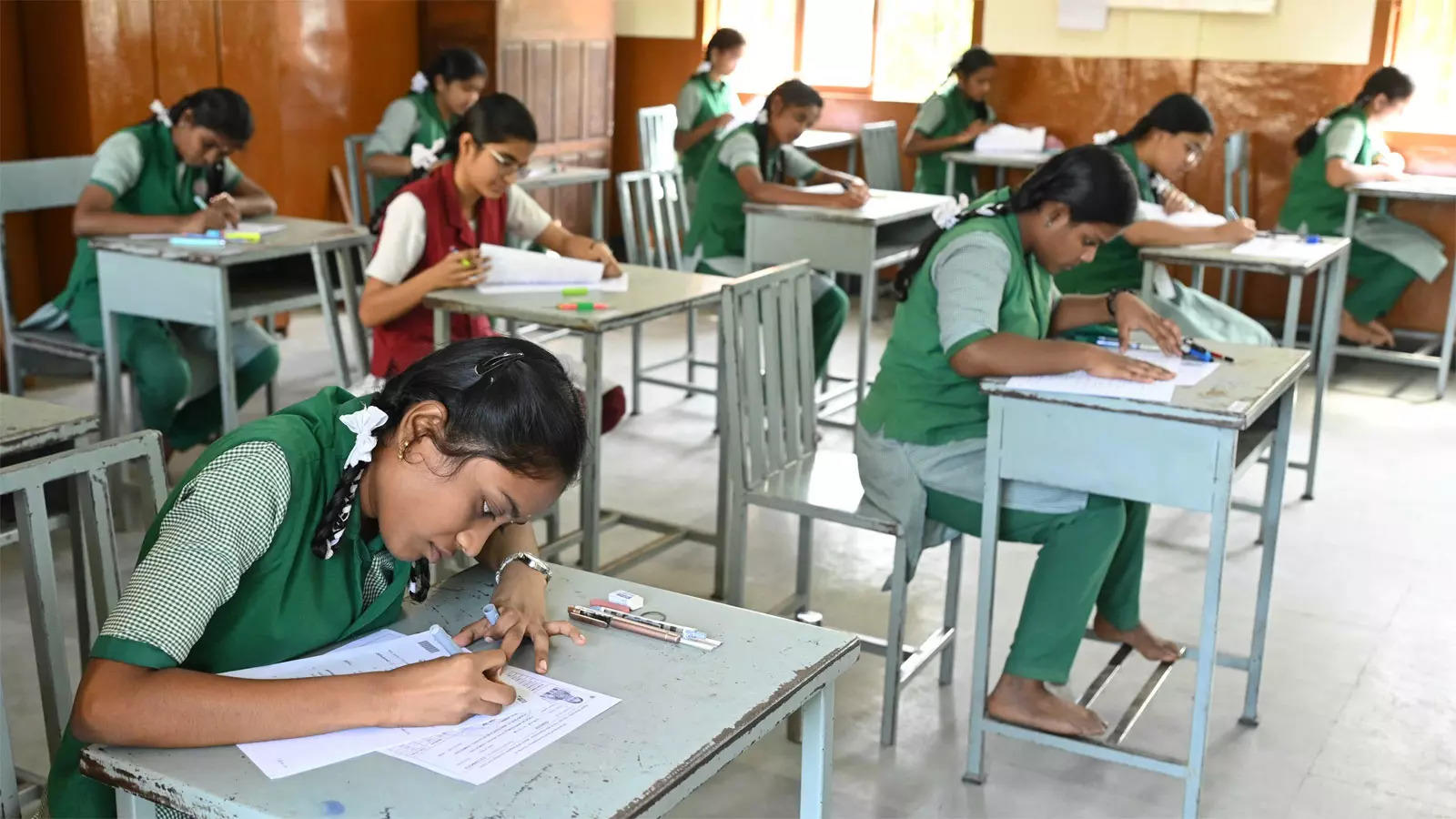In a landmark decision, the Karnataka High Court has nullified the notification issued by the state’s school education department regarding the conduct of board exams for classes 5, 8, and 9. This ruling, delivered by Justice Krishna Dixit, presiding over a single judge bench, upholds the arguments put forth by the Registered Associations of Private Unaided Schools.These associations contended that the proposed exams contradicted the Continuous and Comprehensive Evaluation (CCE) model mandated by the Right To Education Act (RTE) 2009.
The court’s ruling has alleviated concerns for multiple stakeholders, particularly private school management associations, regarding the adverse effects of centralized board exams on student learning. A representative from the Registered Unaided Private Schools Association highlighted the significance of Continuous and Comprehensive Evaluation (CCE) in assessing students’ progress at the school level. They emphasized the importance of evaluating students’ learning journey based on their individual progress rather than through centralized board exams.
Moreover, the ruling underscores the ongoing debate surrounding the role of assessments in the Indian education system and the need to strike a balance between accountability and student well-being. By nullifying the notification, the court has reaffirmed the importance of preserving the integrity of the CCE framework and ensuring that educational policies align with the principles of inclusivity and holistic development.
Additionally, this ruling marks a continuation of the legal saga surrounding the introduction of board exams for classes 5 and 8 in the state. Previous attempts by the government to implement similar assessments faced opposition from private school management associations, leading to legal challenges and subsequent court rulings.
Background
In December 2022, Karnataka introduced board assessments for classes 5 and 8 in state-syllabus schools, aimed at gauging students’ learning levels and addressing any gaps in education. The initiative, led by the Karnataka School Examinations and Assessment Board, focused on formative and summative assessments, replacing the conventional detention system with a more inclusive approach.
Expansion of Board Exams
In September 2023, the Karnataka School Examination and Assessment Board announced the expansion of board exams to classes 9 and 11 from the academic year 2023-24, aiming to standardize assessment procedures, ensure syllabus completion, and enhance education quality across the state.
Setback for Government
The recent court verdict striking down the government’s decision to extend board exams to lower classes has dealt a blow to its plans for educational reform. The ruling underscores the importance of inclusive and consultative policymaking in the education sector, considering diverse stakeholder perspectives and addressing concerns raised by educational institutions and associations.
Way Forward
With the court’s decision, the Karnataka government faces the task of revisiting its educational policies and consulting stakeholders to chart a path forward. Balancing academic rigor with inclusivity and flexibility remains paramount as the state strives to improve educational standards and outcomes for all students.
The court’s ruling has alleviated concerns for multiple stakeholders, particularly private school management associations, regarding the adverse effects of centralized board exams on student learning. A representative from the Registered Unaided Private Schools Association highlighted the significance of Continuous and Comprehensive Evaluation (CCE) in assessing students’ progress at the school level. They emphasized the importance of evaluating students’ learning journey based on their individual progress rather than through centralized board exams.
Moreover, the ruling underscores the ongoing debate surrounding the role of assessments in the Indian education system and the need to strike a balance between accountability and student well-being. By nullifying the notification, the court has reaffirmed the importance of preserving the integrity of the CCE framework and ensuring that educational policies align with the principles of inclusivity and holistic development.
Additionally, this ruling marks a continuation of the legal saga surrounding the introduction of board exams for classes 5 and 8 in the state. Previous attempts by the government to implement similar assessments faced opposition from private school management associations, leading to legal challenges and subsequent court rulings.
Background
In December 2022, Karnataka introduced board assessments for classes 5 and 8 in state-syllabus schools, aimed at gauging students’ learning levels and addressing any gaps in education. The initiative, led by the Karnataka School Examinations and Assessment Board, focused on formative and summative assessments, replacing the conventional detention system with a more inclusive approach.
Expansion of Board Exams
In September 2023, the Karnataka School Examination and Assessment Board announced the expansion of board exams to classes 9 and 11 from the academic year 2023-24, aiming to standardize assessment procedures, ensure syllabus completion, and enhance education quality across the state.
Setback for Government
The recent court verdict striking down the government’s decision to extend board exams to lower classes has dealt a blow to its plans for educational reform. The ruling underscores the importance of inclusive and consultative policymaking in the education sector, considering diverse stakeholder perspectives and addressing concerns raised by educational institutions and associations.
Way Forward
With the court’s decision, the Karnataka government faces the task of revisiting its educational policies and consulting stakeholders to chart a path forward. Balancing academic rigor with inclusivity and flexibility remains paramount as the state strives to improve educational standards and outcomes for all students.
Denial of responsibility! Chronicles Live is an automatic aggregator of the all world’s media. In each content, the hyperlink to the primary source is specified. All trademarks belong to their rightful owners, all materials to their authors. If you are the owner of the content and do not want us to publish your materials, please contact us by email – chronicleslive.com. The content will be deleted within 24 hours.


